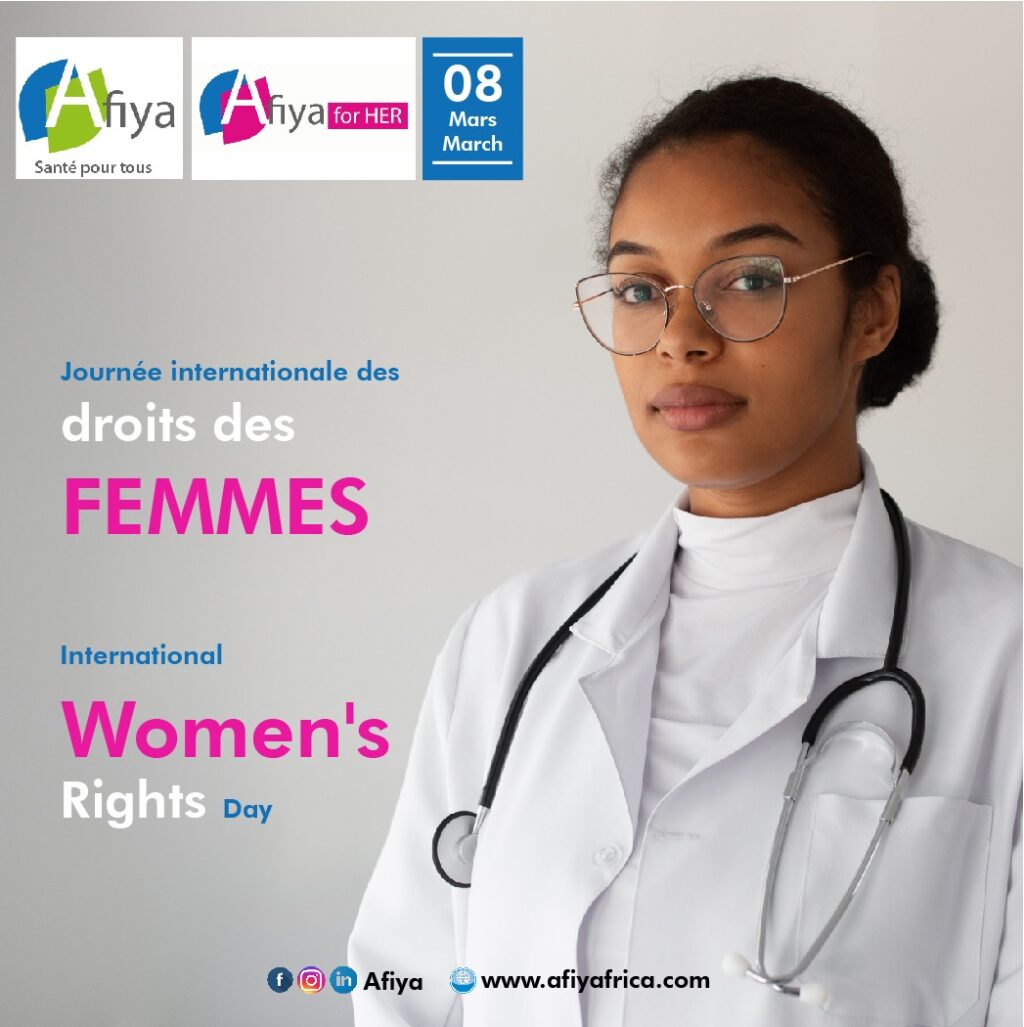March 8, 2025
On the occasion of International Women’s Day, it is crucial to highlight the persistent challenges faced by women in Africa, particularly in the area of health. Although progress has been made in some areas, access to healthcare, social and economic inequalities, and violence against women remain major obstacles to better health for all African women. This article explores the current challenges, while highlighting the urgent need for action to transform the situation and ensure a fairer, more equitable future for the continent’s women.
Access to healthcare: a fundamental right still unevenly distributed
Access to healthcare remains one of the main obstacles to women’s health in Africa, especially in rural areas and marginalized communities. This situation is exacerbated by often inadequate health systems, limited infrastructure and a lack of trained health professionals.
In many rural areas, access to prenatal or gynecological care is still a utopia for many women. Distance and inadequate infrastructure remain major challenges, threatening the lives of many mothers and children.
Also, the cost of healthcare, even for basic services, is unaffordable for the vast majority of women. Poverty is an aggravating factor, preventing many women from accessing essential consultations or treatment.
Also, the absence of specialists and medical staff trained in maternal health in many African regions compromises the quality of care and increases the risks to women’s health, particularly during pregnancy.
Gender inequalities are at the heart of the obstacles to better health for women in Africa. Women continue to face discrimination in almost all areas: education, employment, health, and decision-making.
In many parts of Africa, African women are often excluded from economic resources, particularly in rural areas, where they have limited access to property, education and economic opportunities. This situation makes them more vulnerable to disease, and limits their ability to access quality healthcare.
Women’s lack of decision-making power also plays a major role in their access to healthcare. In many cultures, women have no say in their health choices, their education, or even their working lives. This impoverishment of choice makes them more vulnerable to health risks, while hampering their autonomy.
Pregnancy and motherhood are particularly critical periods for the health of African women, often involving life-and-death issues. Despite efforts to reduce maternal mortality, many women still do not have access to the care they need to ensure their well-being and that of their children.
Complications related to childbirth, lack of adequate prenatal care, and difficult access to postnatal care contribute to the persistence of maternal mortality in many African countries.
Reducing this mortality is an imperative that Africa must strive to achieve.
It should also be noted that access to contraception is a fundamental right for women, enabling them to control their fertility and make informed decisions about their reproductive health. Yet millions of women in Africa still do not have access to modern contraceptive methods.
The taboo surrounding contraception and the lack of accessible, reliable information are major obstacles to women’s reproductive health. Many women are unaware of the options available and misinformed about the benefits of contraception. And even where contraceptive services do exist, access remains limited, particularly in rural areas where specialized clinics are rare.
Violence against women is a pervasive issue that has devastating effects on their physical and mental health. Whether it’s domestic violence, sexual assault or gender-based violence, these abuses have dramatic consequences for women’s health.
Domestic violence is unfortunately common, and women victims are often trapped in situations where stigmatization and lack of support prevent them from seeking help.
Rape and sexual assault, particularly in conflict zones, are major causes of physical and mental trauma. Such violence also increases the risk of transmission of HIV and other sexually transmitted diseases among women.
As we celebrate International Women’s Day, it is imperative to remember that improving women’s health in Africa requires concrete action at all levels. Governments, NGOs and communities must work together to strengthen maternal health policies, improve access to contraception, combat violence against women and guarantee equal access to care. It is essential that every woman not only survives, but thrives.
On this special day, let’s remember that Africa’s future depends on the health and well-being of its women. The fight for their right to a healthy and fulfilled life continues, and we must fight it together, now more than ever.
Dr F Abolore MD
Afiya African Medical Review
References
World Health Organization (WHO). (2019). Women’s health in Africa: report on health inequalities and challenges. Geneva: World Health Organization.
www.who.int
World Bank. (2020). Women, health and development in Africa: Status and prospects. Washington, D.C.: World Bank.
www.worldbank.org
UNFPA (United Nations Population Fund). (2018). Women’s sexual and reproductive health in Africa: Reducing inequalities and promoting access to care. New York: UNFPA.
www.unfpa.org
Hogan, M. C., Foreman, K. J., Naghavi, M., Ahn, S. Y., Wang, M., Makela, S. M., … & Lopez, A. D. (2017). Maternal mortality for 181 countries, 1980-2017: A systematic analysis of progress towards Sustainable Development Goal 3. The Lancet, 392(10155), 1341-1354.
DOI: 10.1016/S0140-6736(18)31928-0
Global Health Action. (2019). Gender equality, health and development in Africa: Understanding the interconnections. 12(1), 1680345.
DOI: 10.1080/16549716.2019.1680345
UN Women.(2020). Progress of the World’s Women 2019-2020: Families in a Changing World. New York: UN Women.
www.unwomen.org
Patel, V., et al. (2018). Global mental health and gender in Africa: Challenges and perspectives. The Lancet Psychiatry, 5(7), 548-558.
DOI: 10.1016/S2215-0366(18)30283-4
Alem, A., et al. (2019). Stigma and Mental Health Care in Africa: The Need for Integrated Approaches. The Lancet Global Health, 7(8), e1134-e1143.
DOI: 10.1016/S2214-109X(19)30350-7
World Health Organization (WHO). (2020). Women’s Health: Addressing Challenges and Improving Access to Services. WHO Regional Office for Africa.
www.afro.who.int
Médecins Sans Frontières (MSF). 2021. Women’s health in Africa: Un combat constant pour l’accès aux soins. Paris: Médecins Sans Frontières.
www.msf.org







OTHER ARTICLES
Editorial — Prevent, inform, and act for women’s health in Africa
Kenya : Government Prioritises Maternal Health and Strengthens Support for Community Health Promoters
Strengthening pandemic prevention, preparedness, and response capacities in Senegal using the “One Health” approach